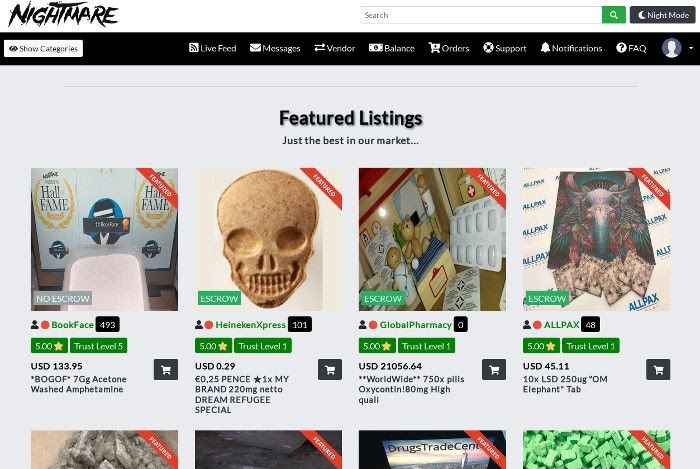The shadowy underbelly of the internet has long captivated the imagination of many, often depicted as a mysterious realm filled with illicit activities and secret secrets. Inside this unindexed part of the internet lies an intriguing marketplace that functions outside the reach of conventional law enforcement, where everything from common goods to severely prohibited services can be discovered behind a veil of anonymity. As interest in dark web commerce increases, so does the curiosity about the drivers that propel these markets and the effects they have on the world.
Exploring the realm of darknet markets reveals a intricate ecosystem fueled by a myriad of elements, including the search for privacy, the desire for unusual goods, and the allure of breaking social taboos. While many are drawn to these platforms for nefarious purposes, others seek out the unique products and services that traditional online shopping cannot offer. Understanding the dynamics of darkweb markets is crucial not only for comprehending the shadowy aspects of online trade but also for recognizing the changing landscape of digital commerce in the 21st century. spintax #### Comprehending the Dark Web
The dark web represents a hidden part of the internet that is not listed by traditional search engines. It functions on secondary networks that require particular software, arrangements, or permissions to get to. The most frequent way to explore the dark web is through Tor, which anonymizes user activity by directing internet traffic through a network of community-operated servers. This level of anonymity attracts a varied range of users, from those seeking privacy to individuals involved in illegal activities.

Underground markets are a key component of the dark web, serving as online platforms where products and resources, often prohibited, are bought and traded. These markets offer a variety of commodities, including drugs, counterfeit products, and cybersecurity services. The deals on these platforms typically make use of cryptocurrencies to enhance anonymity, making it difficult for authorities to follow the buyers and sellers involved. This context fosters a distinct economy that exists outside conventional regulations.
Comprehending the driving forces behind the use of dark web markets is essential. While many users are attracted to the promise of confidentiality and the ability to escape censorship, others may be driven by interest or the desire to engage in risky behavior. The allure of anonymous commerce can create a complex web of interactions that thrive far from the oversight of law enforcement and social norms, making it a intriguing yet concerning area of study.
The Economy of the Darknet
The darknet is an complex economy that operates mainly beyond traditional financial systems. This clandestine market thrives on anonymity and is driven by various demand and supply dynamics. Digital currencies, especially cryptocurrencies, serve as the main medium of exchange, providing the necessary confidentiality for transactions. This financial mechanism attracts buyers and sellers who seek to bypass regulatory oversight and engage in activities often deemed unlawful in the conventional marketplace.
Within this hidden economy, a variety of goods and services can be found, from illicit drugs and counterfeit goods to cyber services and stolen data. The functioning of darkweb markets involves a complex approach to ensure security and secrecy for all participating parties. darknet markets links Vendors often use escrow services to protect transactions from fraud, while buyers rely on reviews and ratings to gauge the credibility of sellers. This system creates a unique environment where trust is built through digital reputation rather than traditional means.
The economic environment of the darknet has significant implications for global commerce and law enforcement. Authorities struggle to regulate these markets due to their dispersed nature and the advanced methods employed by users to obscure their identities. As darkweb markets continue to develop, they raise ongoing questions about the future of digital trade, the balance between privacy and security, and the persistent challenge of controlling illicit activities online.
Hazards and Morality of Dark Web Deals
Involved in deals on the dark web raises notable concerns for individuals. One of the primary issues is the risk for scams and scams. Many platforms have little regulation, leading to scenarios where clients may lose their money without obtaining the promised goods or offerings. Additionally, the anonymity of the underground can enable harmful agents to manipulate individuals, thus making it important for users to act with vigilance and carry out comprehensive investigation before conducting any purchases.
Aside from monetary risks, there are law-related implications associated with dark web trade. Many items and assistance sold on these sites are forbidden, covering everything from narcotics to stolen files. Acquiring or even looking at certain products can subject individuals to legal scrutiny or possible penal charges. It is crucial for people to comprehend the legislation in their region and to be mindful of the repercussions of involvement with underground platforms.
In terms of ethics, the underground presents a complicated environment. Though some argue it offers a space for expression and access to knowledge in oppressive governments, the overwhelming presence of illegal conduct challenges its perception. Transactions that contribute to injury, be it through narcotic dealing or the sale of forbidden content, question the values of users. Moving through this moral terrain calls for a profound consideration on the consequences of one's choices and their greater impact on the community.
